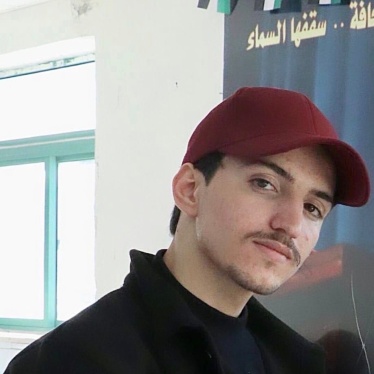Saudi Arabia's arrest of hundreds of peaceful protesters in a series of demonstrations and its continued denial of freedom of expression and assembly make a mockery of the kingdom's pledges of political reform, Human Rights Watch said today.
The first demonstration took place in the capital, Riyadh, on October 14, the opening day of a human rights conference organized by the Saudi Red Crescent Society under the patronage of the Minister of Interior, Prince Nayef. The Movement for Islamic Reform in Arabia (MIRA), a London-based political opposition group, called for the demonstration.
Police forcibly dispersed the demonstrators, who were advocating political reform and the release of political prisoners, and arrested 271 persons. The government announced that 83 of those arrested will face trial. Prince Nayef said on October 22 that the government will not tolerate public demonstrations and promised "deterrent punishment" in the courts.
"Everyone in Saudi Arabia should be free to express his or her political views publicly and peacefully without being thrown in jail and put on trial," said Joe Stork, acting executive director of the Middle East and North Africa division of Human Rights Watch. "The reality of the repression speaks louder than the promises of reform."
Most of those arrested on October 14 were released "after proving that they had been drawn into the crowd and acted out of curiosity," an Interior Ministry spokesman said. Eighty-three others, including three women, were detained for questioning and trial on unspecified charges. An Interior Ministry spokesman denounced this group, stating that it "does not reflect the reality of Saudi society" and "is not compatible with Islamic values."
The crackdown on the demonstrators, MIRA said on October 16, made it "inevitable that the thinking has to be on the basis of comprehensive change and removal of this despotic regime." The Saudi exile group added that it would call for additional peaceful protests but warned that "it will find it difficult to blame the parties that believe in the use of force" and that it "will not hesitate to hold the state responsible for any acts of violence that might happen in future."
On October 21, MIRA called for demonstrations two days later in Riyadh, Jeddah and seven other Saudi cities "to denounce the injustice and the corruption in the kingdom." A massive and well-organized deployment of security forces on October 23 kept protesters away in each city. Reuters reported that police filmed pedestrians near a mosque in Jeddah that was designated as the gathering place for demonstrators, and security officials in plainclothes recorded license plate numbers. According to the daily Bahrain Tribune, in Riyadh "police vehicles blocked access to side streets leading to the [designated] mosque … and pedestrians were turned away from the immediate vicinity of several of the mosque entrances. Checkpoints were set up on a main road leading to the neighborhood, and the police stopped some cars." One government official reported that 30 people were arrested in Jeddah, 31 in Dammam, and 13 in Ha'il. The government announced that those arrested would also be put on trial.
Freedom of assembly is an internationally recognized basic right codified in the Universal Declaration of Human Rights, which in Article 20(1) states: "Everyone has the right to freedom of peaceful assembly and association." Saudi Arabia's Basic Law of Government, promulgated in 1992 and which the government describes as "a bill of rights for the citizen," fails to provide for freedom of peaceful assembly.
Human Rights Watch urged Crown Prince Abdallah and other senior government officials to:
- Determine and make public the basis under Saudi law for the continued detention of some 150 demonstrators, and clarify if they are under investigation for alleged criminal offenses.
- Ensure that each detainee is provided all the rights under Saudi Arabia's new criminal procedure code, including the right to a lawyer during investigation and trial.
- Set forth the legal or administrative procedures that residents of the kingdom can utilize in order to exercise the right to peaceful assembly. Such procedures should enable, not hamper, the exercise of this right, and they should be consistent with internationally recognized human rights standards.
Advocates of reform in Saudi Arabia have long pressed for freedom of expression, association and assembly. In January 2003, hundreds of Saudi citizens signed a petition, the National Reform Document that urged comprehensive reforms "to strengthen relations between the leadership and the community." One of the requests was for a "royal announcement" guaranteeing the rights of freedom of expression and assembly. Crown Prince Abdallah, the country's de facto ruler, received the petition and later met with a group of the signatories.
Another petition in September 2003 criticized the slow pace of reform and the absence of popular participation in decision-making. It advocated election of the 120-member Consultative Council and observed that the lack of freedom of expression fostered the growth of intolerance and extremism.







